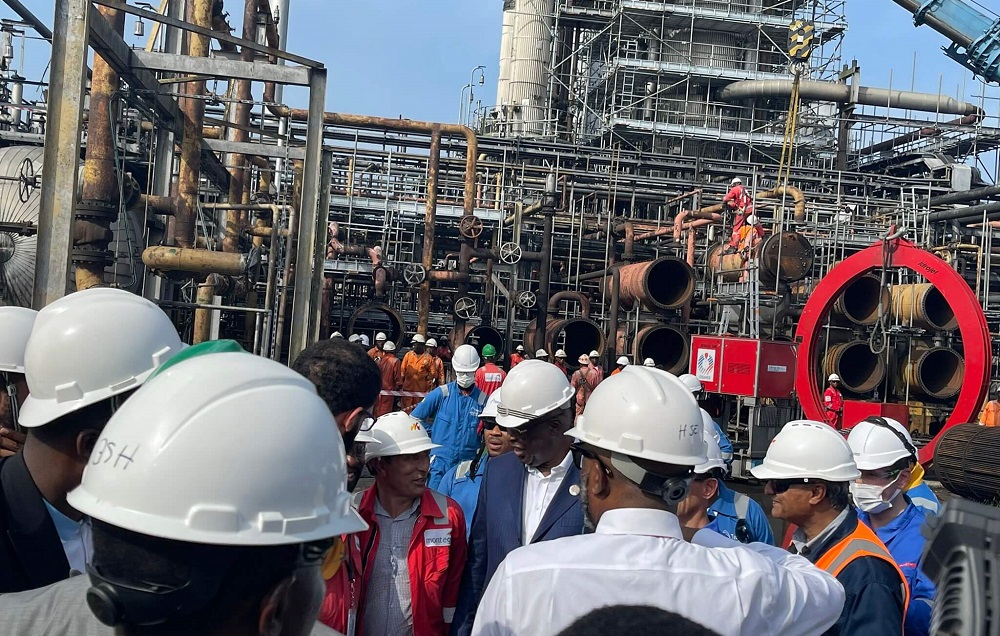
Acknowledgment of Mistakes in Refinery Rehabilitation
The Nigerian National Petroleum Company Limited (NNPC Ltd) has admitted that resuming operations at the Port Harcourt Refinery before its full rehabilitation was a poorly informed decision. This admission, made by the Group Chief Executive Officer (GCEO), Bayo Ojulari, during a company-wide town hall, validates concerns raised by investigative reports and highlights a significant misstep in the country’s energy sector.
The refinery, which was part of a $1.5 billion rehabilitation project awarded to Italian engineering firm Maire Tecnimont in 2021, had been claimed to be operating at 70% capacity following a November 2024 announcement. However, an investigation conducted by zaia news in December 2024 revealed that only the Crude Distillation Unit (CDU) was functioning, processing just 6,500 barrels of crude oil per day—roughly 10% of the plant’s stated capacity.
This discrepancy sparked widespread public concern, with experts and community leaders accusing the NNPC of inflating performance figures. Engr. Alex Ogedegbe, a former Managing Director of both the Port Harcourt and Warri refineries, emphasized that it is impossible to operate a 60,000 barrels-per-day refinery and produce only 6,500 barrels without misleading the public.
Backtracking on Previous Claims
Ojulari’s recent acknowledgment marks a shift in the company’s stance. He admitted that the decision to resume partial operations lacked sufficient technical or financial justification and confirmed that the full rehabilitation of the plant remains incomplete. This contrasts with earlier statements made by the GCEO at the 2025 OPEC Seminar in Vienna, where he suggested that “all options are on the table” regarding the future of the refinery.
However, Ojulari clarified that the NNPC will not sell the Port Harcourt Refining Company but instead reaffirm its commitment to completing the rehabilitation. He described the decision as a recognition of the refinery’s strategic value and the need for high-grade technical partnerships to finalize the work.
Implications of Premature Operations
The premature declaration of the refinery's operational status has led to broader questions about transparency and governance in Nigeria’s energy sector. Experts argue that the government’s focus on political optics often overshadows technical realities, resulting in inflated claims that do not hold up under scrutiny.
The disparity between the NNPC’s claims and actual truck-out data from late November to early December—ranging between 4 to 19 trucks per day—suggests a gap in communication and operational readiness. Additionally, revelations that the refinery was loading old stock from previous years, with no proper connectivity established between the old and new facilities, further complicate the narrative.
Community leader Mr. Timothy Mgbere alleged that product truck-out figures were stage-managed for media purposes, raising concerns about the authenticity of the reported output.
A Pattern of Missteps
This is not the first time the NNPC has faced accusations of prematurely declaring refinery functionality. Similar claims were made in 2023 when flaring activities were staged to give the impression of readiness, only for the flares to disappear days later. Experts like Ogedegbe continue to express frustration over the gap between policy and performance.
The GCEO’s remarks about seeking more “advanced technical partnerships” could indicate a shift toward deeper collaboration with international technology providers or potential joint venture arrangements. However, these plans remain unconfirmed.
Energy Security and Public Confidence
The fallout from the premature declaration raises broader questions about energy planning and governance in Nigeria. Despite billions of dollars spent, the country had been importing almost 100% of its refined petroleum products. The arrival of the Dangote Refinery in Lagos has helped alleviate this situation, but the Port Harcourt Refinery’s rehabilitation remains critical to achieving long-term energy security.
Restoring public confidence will be as crucial as completing the technical work, especially as global energy markets evolve and international scrutiny on governance in oil-producing nations intensifies.
Accountability, Not Optics
While the NNPC Ltd’s latest statement may signal a step toward accountability, industry stakeholders insist that real transparency, clear timelines, and measurable performance metrics must follow. For now, the focus remains on ensuring that the rehabilitation of the Port Harcourt Refinery delivers verifiable and sustained refining output that benefits the economy and consumers.
